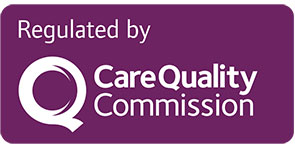Prostate cancer is a significant health concern for men worldwide, ranking as the 2nd most common form of cancer in men. More than 52,000 men in the UK are diagnosed with prostate cancer yearly (i.e., 144 men daily in the UK alone), while almost 1.4 million new prostate cancer diagnoses worldwide annually. In addition, every year, 12,000 men die of prostate cancer in the UK (one every 45 minutes). The risk of developing prostate cancer increases, making it a particularly prevalent concern for older men. Genetics, family history, and race can also affect an individual’s likelihood of developing this cancer.
While the statistics can be daunting, there is a silver lining: early diagnosis. Detecting prostate cancer at its earliest stages can be a lifesaver, offering a higher chance of successful treatment and a better quality of life. This article will explore the importance of early diagnosis of prostate cancer and its impact on patients and their families.
The Importance of Early Diagnosis
Early diagnosis of prostate cancer is a game-changer in the fight against this disease. When prostate cancer is detected early, the prognosis is generally more favourable. The key benefits of early diagnosis include:
- Increased Treatment Options: Detecting prostate cancer in its early stages allows for a broader range of treatment options, including active surveillance, surgery, radiation therapy, various forms of hormone therapy, and newer localised treatment options such as focal therapy. These treatments are often more effective when the cancer is localized.
- Higher Survival Rates: Early diagnosis significantly improves the chances of survival. In many cases, prostate cancer diagnosed early can be completely cured.
- Reduced Treatment Side Effects: Treating prostate cancer at an advanced stage may require more aggressive interventions, leading to increased side effects and a decreased quality of life. Early diagnosis often means less invasive treatments and fewer complications.
- Emotional and Psychological Well-being: Knowing the status of one’s health and receiving timely treatment can reduce anxiety and stress associated with uncertainty. Early diagnosis can also alleviate the emotional burden on patients and their families.
Screening and Early Detection
Blanket screening for all men is not suggested, and doctors will recommend a risk-adjusted approach for screening. Certain factors increase the risk of finding prostate cancer. These include:
- age > 50
- men from 45 years of age and a family history of Prostate cancer
- men of African descent from 45 years of age
- men carrying BRCA2 mutations from 40 years of age.
Screening for prostate cancer typically involves two main methods:
- Prostate-Specific Antigen (PSA) Test: This blood test measures the levels of PSA, a protein produced by the prostate gland. An elevated PSA could denote several conditions, including a normal benign prostate enlargement, infection, inflammation, or sometimes cancer. After discussion with your doctor, if they feel that the elevated PSA levels could indicate the presence of prostate cancer, this might prompt further evaluation.
- Digital Rectal Examination (DRE): A healthcare provider checks the prostate gland for abnormalities by inserting a gloved finger into the rectum during this physical examination. An abnormal texture or size of the gland may warrant further investigation.
It is important to note that while these screening methods can help identify potential cases of prostate cancer, they are not definitive diagnostic tools. A biopsy, where a small tissue sample is taken from the prostate for examination, is required to confirm the presence of cancer.
Challenges and Controversies
Despite the clear benefits of early diagnosis, ongoing debates and challenges are associated with prostate cancer screening. Some argue that the PSA test can lead to overdiagnosis and overtreatment, potentially exposing patients to unnecessary procedures and side effects. Individuals must discuss the pros and cons of prostate cancer screening with their healthcare providers and make informed decisions based on their unique risk factors and preferences.
Conclusion
Early diagnosis is undeniably crucial in the battle against prostate cancer. It offers patients a lifeline, increasing the chances of successful treatment and improving overall quality of life. Men should be proactive about their prostate health, especially as they age, and discuss the benefits and potential drawbacks of screening with their healthcare providers. By staying informed and vigilant, we can work together to reduce the impact of this prevalent cancer and continue to make strides in prostate cancer research and treatment. Early detection can save lives.









